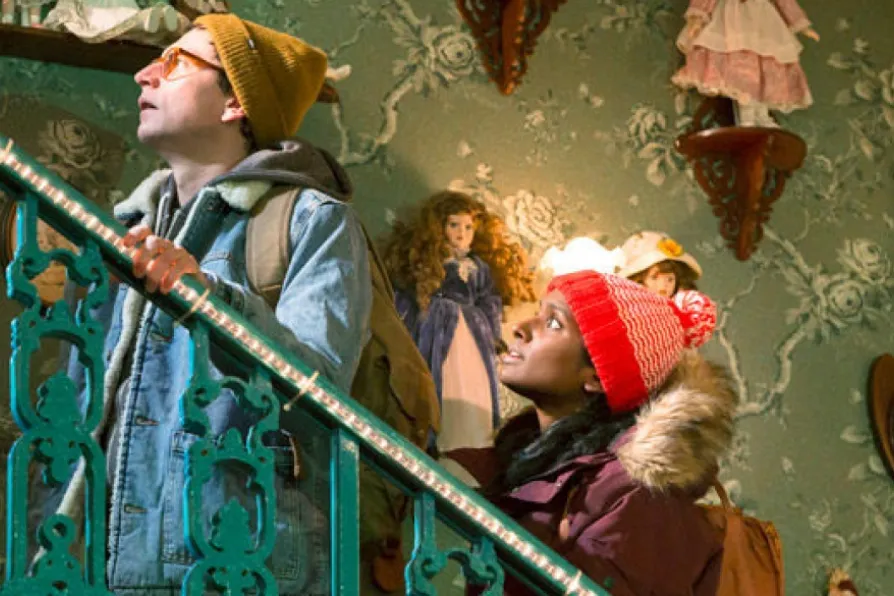MATTHEW HAWKINS contrasts the sinister enchantments of an AI infused interactive exhibition with the intimacies disclosed by two real artists

 Scary stairs: Chloe Langford's set for John
[Stephen Cumminskey]
Scary stairs: Chloe Langford's set for John
[Stephen Cumminskey]
John
National Theatre, London
BY ANY standards, Annie Baker’s John is an astonishing play. Imaginative, free-thinking and anarchic, in the hands of James Macdonald at the National, it's totally captivating.
Its premise, you could argue, is that the universe has its own spiritual life and that all matter, breathing and inanimate, is possessed of a soul.
As a result, human life is a tiny presence in an unimaginably complex reality and human beings, far from possessing knowledge and power and superiority, struggle with an individual isolation and irrationality that engenders madness. At least, that’s my understanding.

MARY CONWAY is blown away by a flawless production of Lynn Nottage’s exquisite tragedy

MARY CONWAY recommends a play that some will find more discursive than eventful but one in which the characters glow












